Donate to Africa
Record numbers of people across Africa are facing unprecedented humanitarian crises.
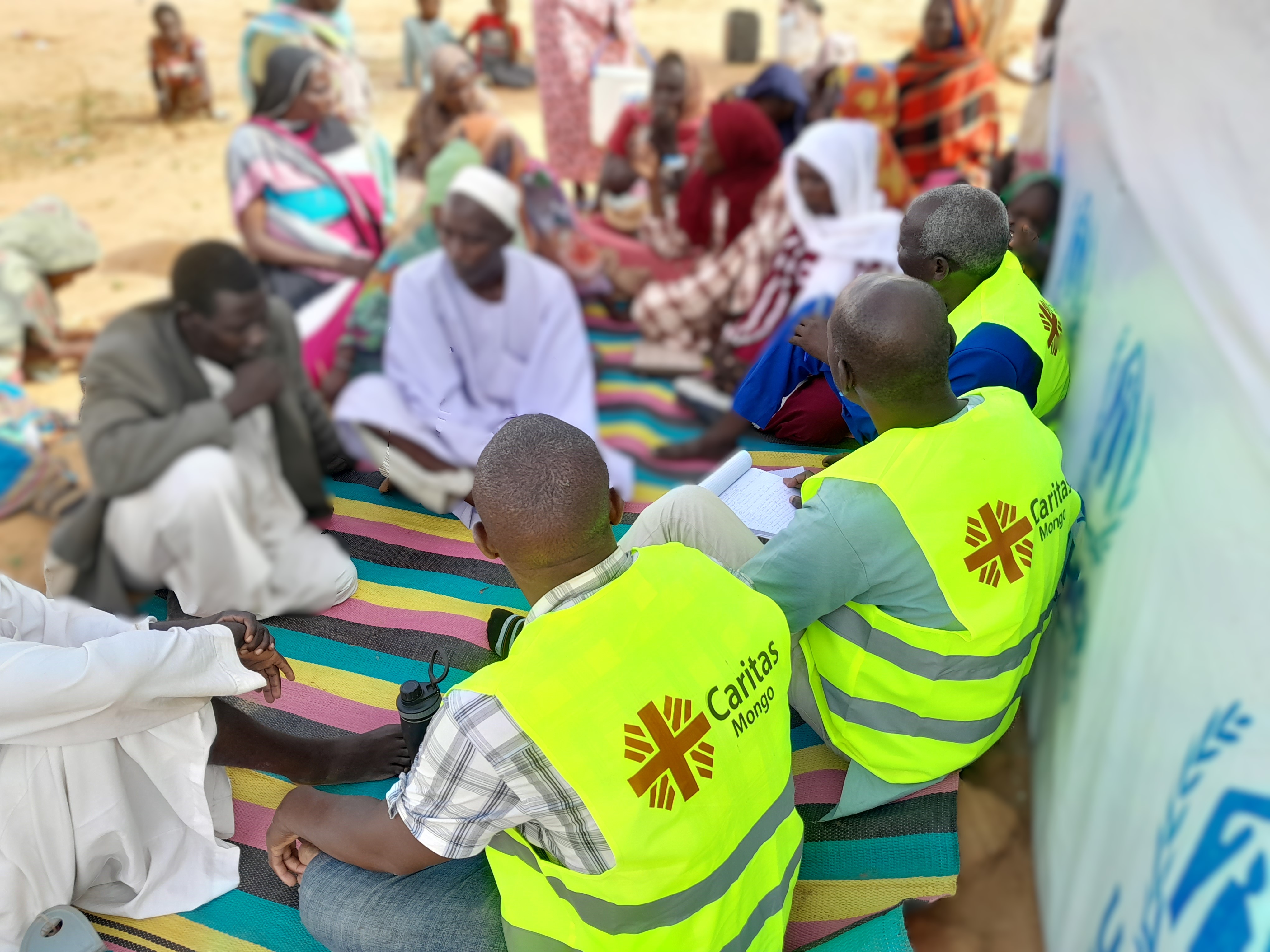
Aid workers sit with Sudanese refugees in Chad. Photo credit: Caritas Mongo.
The humanitarian crisis in Africa
51.7 million people
are facing food insecurity across the Horn of Africa.
9.3 million children
are acutely malnourished.
20 million people
are internally displaced.
5.6 million people
are hosted as refugees or asylum seekers across the region.
Your compassion helps our partners provide:
Emergency food rations and nutrition support
Safe, clean water and hygiene facilities
Emergency cash transfers for essential needs
Support to families forced from their homes by conflict
Africa in Crisis
Help save lives today
Across Africa, millions of people are trapped in a desperate struggle for survival. Conflict, violence, hunger, and displacement are tearing communities apart. Families who once relied on farming are watching their crops fail and their livestock perish. Food and fuel prices have soared beyond reach. Children are starving. Parents are powerless to provide. The situation is critical.
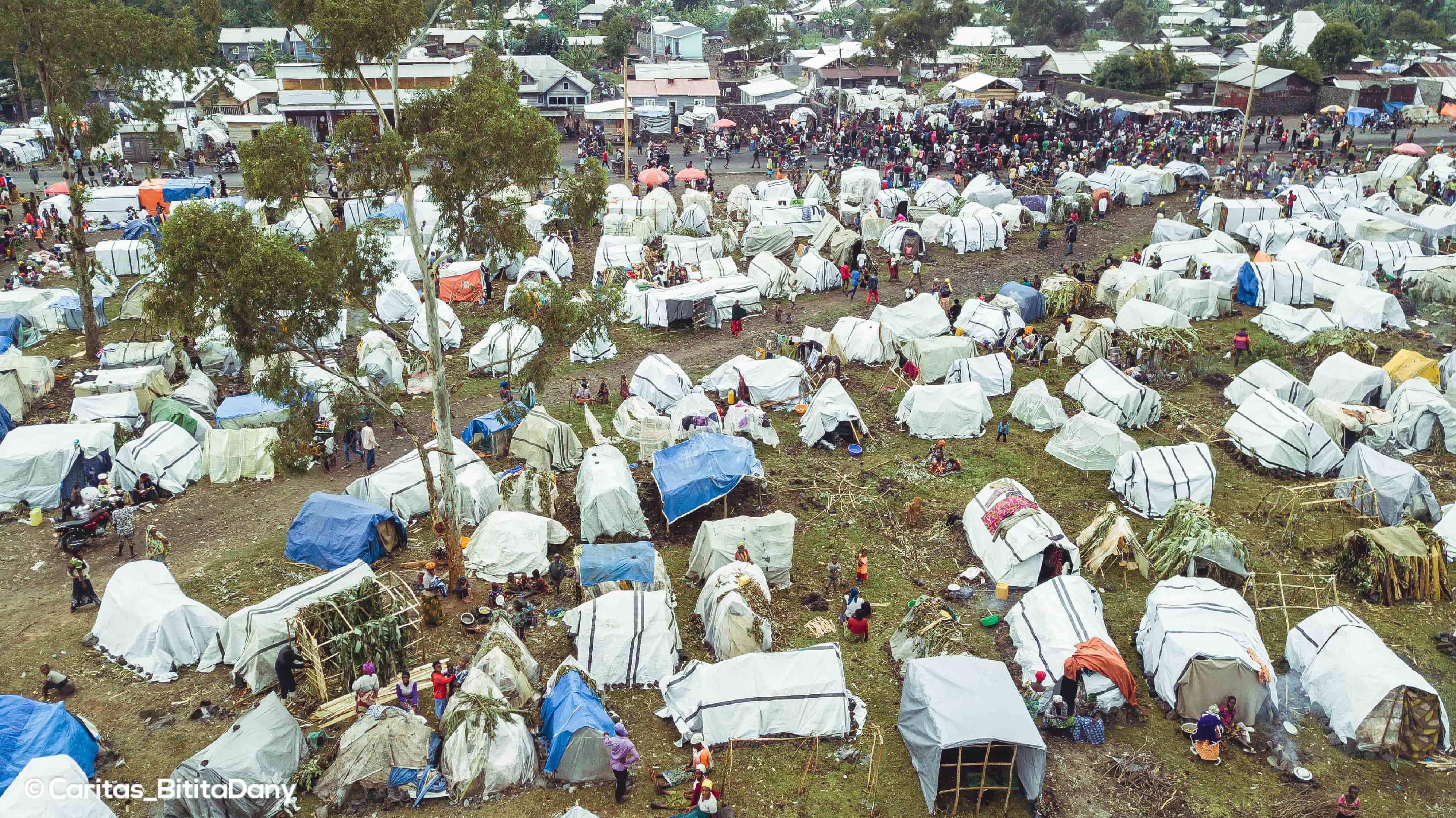
IDP camp near Goma in DRC. Photo: Caritas Goma.
Democratic Republic of the Congo Crisis
In the Democratic Republic of the Congo, violence is forcing families from their homes.
Over 400,000 people have fled for their lives, seeking safety in overcrowded displacement camps around Goma. These families have nothing—no food, no water, no shelter. The suffering is unimaginable, and the crisis is escalating by the day.
Our partners are on the ground, ready to provide life-saving aid, but we urgently need your support.
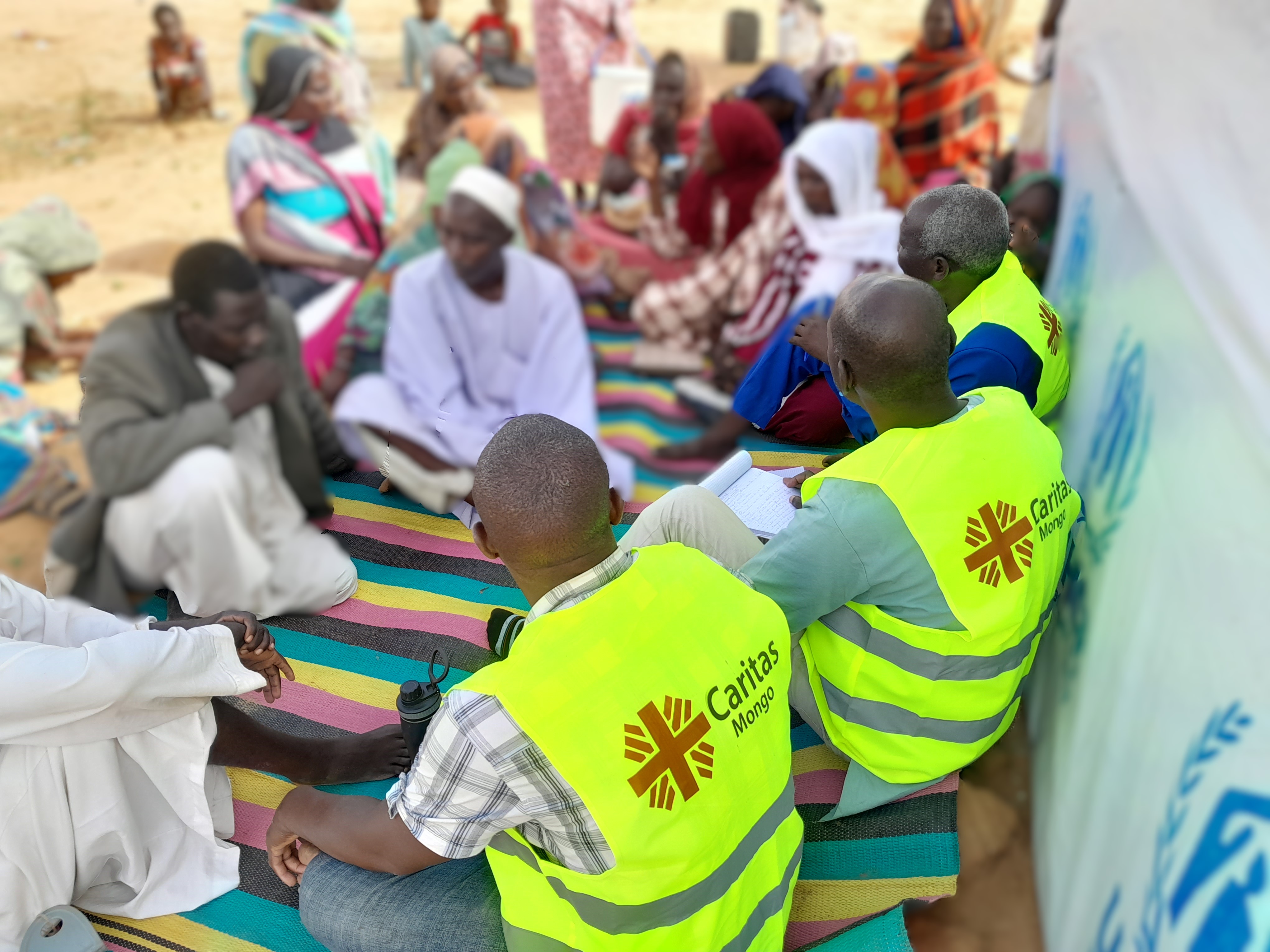
Aid workers sit with Sudanese refugees in Chad. Photo credit: Caritas Mongo.
Sudan Displacement and Hunger Crisis
In Sudan, a catastrophic hunger and displacement crisis is unfolding. The need is overwhelming.
Over 11 million people have been displaced since conflict erupted in April 2023, and famine has already been declared in several camps for displaced people. Children are dying from malnutrition, and a deadly cholera outbreak is spreading through vulnerable communities.
Our partners are on the ground providing emergency shelter, clean water, food and support for basic necessities.
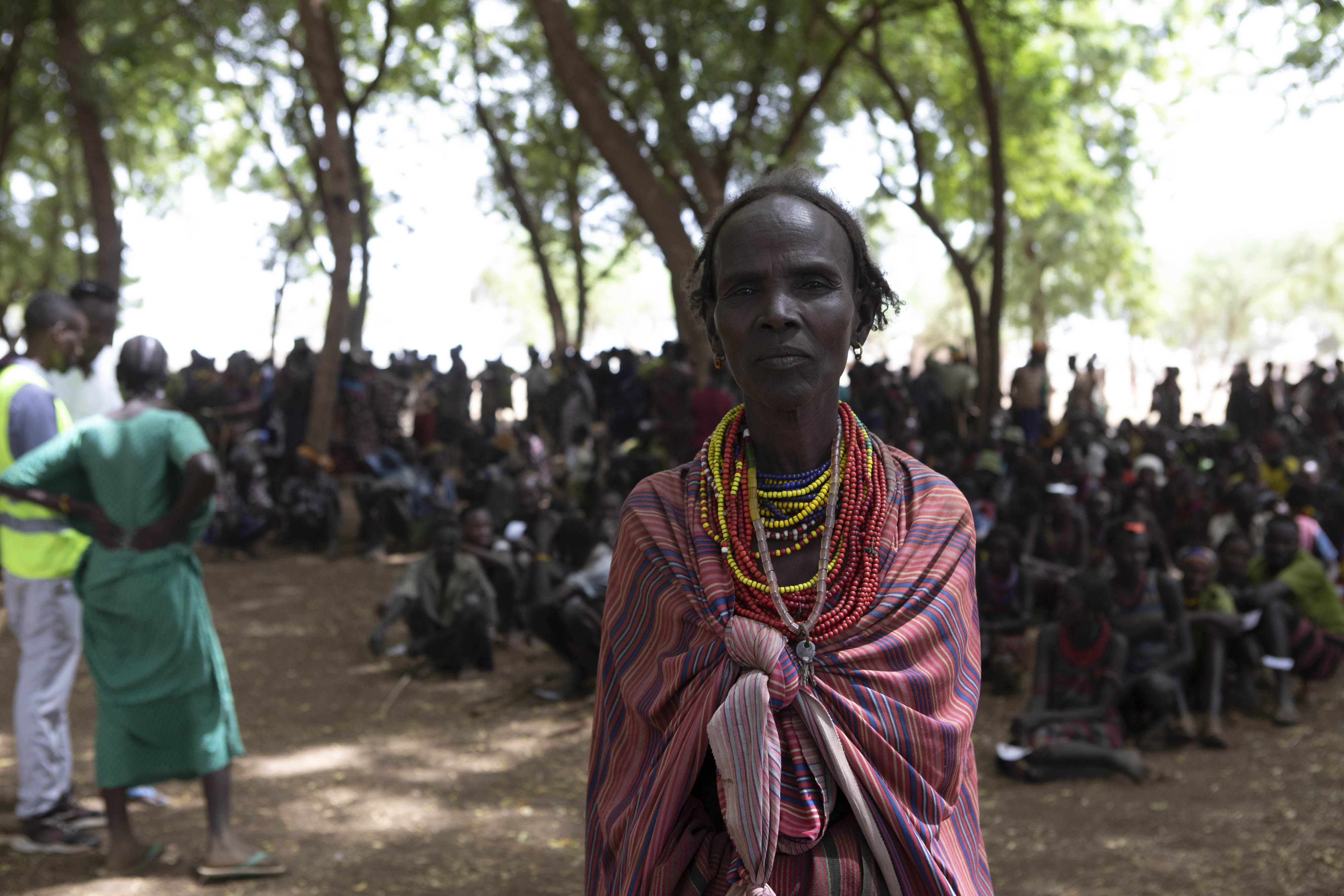
Ayoyo, a complaints volunteer in her community in southwestern Ethiopia.
The Horn of Africa Food Crisis
Across the Horn of Africa, countries like Kenya, Somalia, Eritrea, Ethiopia, and South Sudan are facing one of the worst hunger crises in history.
A relentless and severe drought, driven by climate change, has destroyed crops and killed livestock across multiple countries, directly impacting the livelihoods and survival of millions. When storms came, devastating floods followed, washing away homes and contaminating water sources, exacerbating the suffering of vulnerable communities.
Our partners are on the ground delivering emergency food supplies, clean drinking water, support for displaced families and more.
You Can Make A Difference Right Now
Your donation can provide food for a starving child, clean water for a struggling family, or emergency shelter for those who have lost everything.
How your donation helps
What your help can achieve
Your compassion and generosity can help our partners support vulnerable communities with:
Food distribution to households at risk of malnutrition.
Support to children impacted by malnutrition.
Clean drinking water and support for sanitation.
Cash transfers to households experiencing poverty.
Hygiene supplies, including soap and hand sanitiser.
Emergency shelter for vulnerable communities displaced by crisis.
Seeds and household items for families impacted by conflict and displacement.
Environmentally sustainable and drought-resistant farming training and support.
Talaso’s Story: A Mother’s Fight for Survival in Kenya
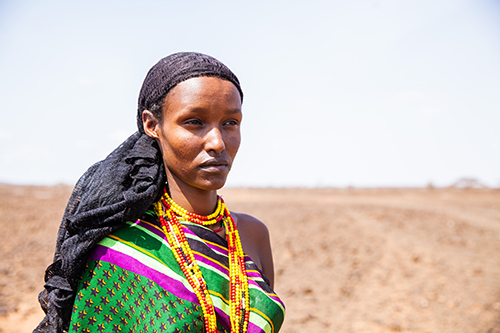
Talaso is a mother of two living in Marsabit, northern Kenya. Photo: Thom Flint/CAFOD
Talaso, a young mother from northern Kenya, once lived a comfortable life with her husband, relying on their livestock for food, milk, and income. But when the relentless drought struck, it stole everything from them—their livelihood, their security, and their hope for the future. Now, she struggles every day to keep her children alive.
“When we were young, we didn’t have to stress, there were no droughts like this. We’d just take care of our livestock. Our lives were comfortable then,” Talaso said.
Today, everything has changed. Without livestock to sell, there is no money to buy food, no milk to nourish her children, and no means to afford school fees. Hunger is a daily battle.
“The life now is so difficult. There is no food, there is no water, the livestock are no longer here. We used to have livestock and we used to sell the livestock and get food. Now everything is gone, and we have a very difficult life now.”
Talaso speaks of the heartbreaking choices she faces as a mother. She has gone hungry so that her children can eat. But even then, some days, there is simply nothing.
“There are many times that children, my family goes without food. As a mother, when I gave birth, I needed food, but I don't have food. I needed milk, but I don't have milk. I have a child, I have nothing to give that child. I went through a very difficult situation as a mother,” Talaso said.
The cruel reality of drought has stripped Talaso of her independence. She now relies on the kindness of others and humanitarian aid just to survive. Without cash, she cannot buy food. Without livestock, she has no way to earn.
“I don't buy food because I don't have any cash. Other than what somebody gives me, I don't buy any food because I don't have cash.”
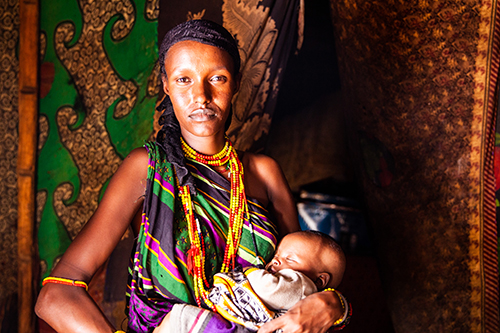
Talaso is a mother of two living in Marsabit, northern Kenya. Photo: Thom Flint/CAFOD
The impossible choices she faces haunt her daily. Does she scrape together what little she has for food and water, or does she try to secure an education for her children, offering them a better future? The cost of survival is overwhelming.
“I wish I had enough to make sure that my children are comfortable. To make sure that some of them go to school and get a good education,” Talaso said.
“It's very difficult to balance between providing food and water and paying school fees. Because getting the food and water is expensive. And you need school fees to send children to school, so this is a very difficult situation.”
Talaso’s story is not unique—millions of families across eastern Africa are enduring the same struggle. Without urgent intervention, more lives will be lost.
You can help mothers like Talaso. A donation today can provide food, clean water, and emergency relief to families on the brink of survival.
Donate now and give hope to those who need it most.
Sibomana's Story: Resilience and Community Empowerment in the Democratic Republic of the Congo
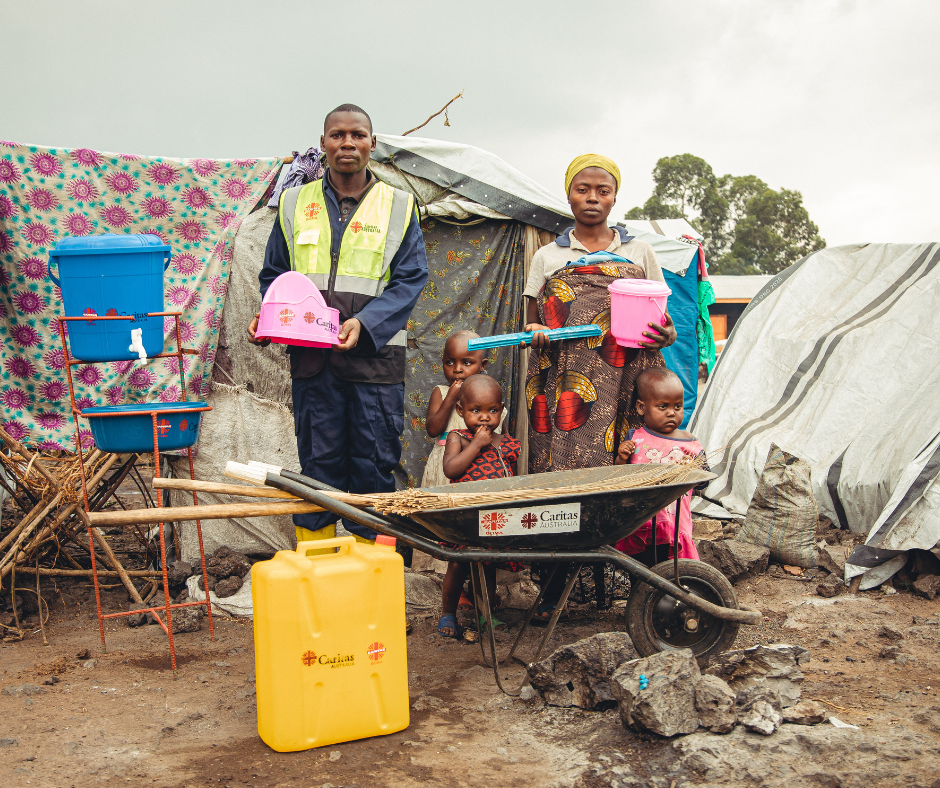
Sibomana and his family in an IDP camp. Photo: Bitita Dany/Caritas Goma
Sibomana, a 34-year-old father of six, has faced unimaginable hardship. Forced from his home by war, he now lives in the overcrowded and precarious Mboga primary school displacement site in North Kivu. Twice displaced, Sibomana has lost family members and endured immense suffering—yet his spirit remains unbroken. Amidst this turmoil, he has become a beacon of hope, leading efforts to protect his community from disease and hardship.
Fondly known as Sibo, he is a leader among the internally displaced persons (IDPs), using his extraordinary ability to mobilize and support those around him. Recognized by the Nyiragongo health zone as a hygiene promoter, Sibo has taken on a vital role in ensuring the health and safety of those who, like him, have lost everything. Since March 2023, he has been an essential part of the hygiene committee, a dedicated team of 51 individuals supported by Caritas Goma.
Sibo’s work is crucial. In a place where unsanitary conditions threaten lives, he educates his fellow displaced persons on hygiene and sanitation, helping to prevent deadly disease outbreaks like cholera. Every day, he works tirelessly to keep his community safe, despite the grueling conditions he faces himself.
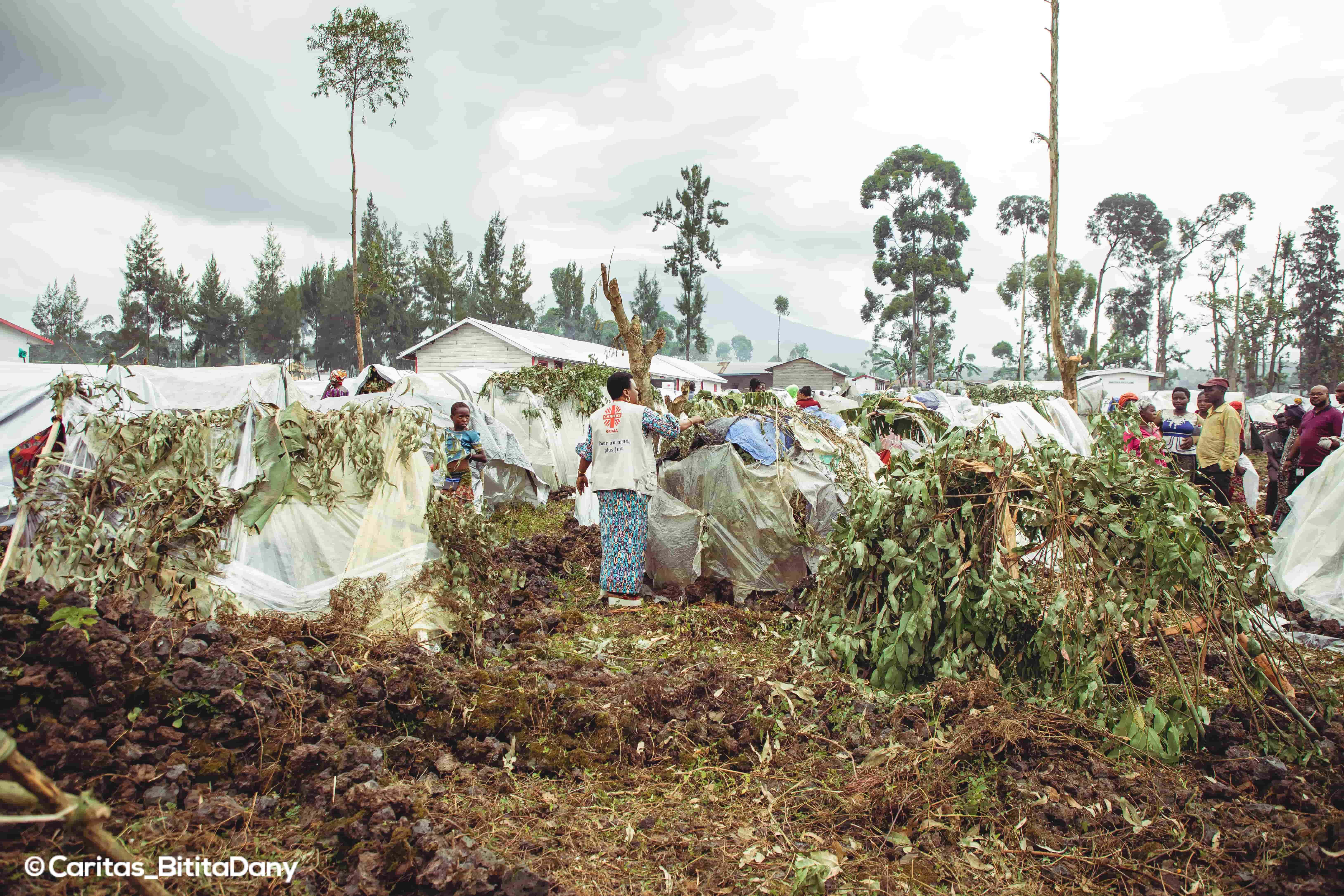
IDP camp near Goma in DRC. Photo: Caritas Goma.
Fighting Disease and Restoring Dignity
The hygiene committee, which Sibo is an integral part of, plays a life-saving role in preventing disease outbreaks in IDP camps. Without clean water and sanitation, deadly diseases spread rapidly—but thanks to Caritas Goma’s support, this committee is making a real difference. They disinfect public toilets and households at risk of cholera, ensuring that families can live with dignity and safety.
In an extraordinary initiative, part of the team is dedicated to collecting and disposing of rubbish, preventing the buildup of waste that fuels disease. The waste is then treated and reused as fertilizer in local fields, turning devastation into renewal.
“I am very proud of this work because the community shows me its gratitude for the number of mountains of rubbish that we have already evacuated for the greatest happiness of the displaced population.”
Through the relentless efforts of Sibo and his team, Caritas Goma has also made a tangible impact on sanitation. A vacuum truck, rented by Caritas Goma, has already emptied over ten clogged toilet blocks—each with at least ten toilet doors—giving hundreds of families a safer, more sanitary environment. This vital intervention has reduced the need for open defecation, a key factor in controlling the spread of cholera.
A Daily Struggle for Survival
Despite his selfless service, Sibo, like the other 51 hygiene promoters (80% of whom are also displaced persons), faces a daily fight to survive. Though he works as a volunteer, he receives a small incentive bonus (cash for work) at the end of each week—barely enough to sustain his family in these dire conditions. Yet, even in the face of adversity, Sibo’s determination never wavers.
A Call to Action
Sibo’s resilience is a testament to the strength of the human spirit. He is not just fighting for his own survival—he is fighting for the health and dignity of his entire community. But he cannot do it alone. The needs are immense, and without continued support, thousands remain at risk.
These life-saving efforts, which benefit Sibomana and thousands of other displaced persons, are made possible through funding from Caritas Australia.
Your help is needed now more than ever. Donate today to support displaced families like Sibo’s. Your generosity can provide clean water, improved sanitation, and the critical aid needed to prevent disease and save lives.
Act now. Every moment counts.
Bute and Burre’s Story: Fighting for Survival in Ethiopia
Bute, a respected village elder in southern Ethiopia, and his wife, Burre, have witnessed many droughts in their lifetime—but nothing like this. Their once-thriving community, rich with livestock and fertile fields, has been devastated by a relentless climate disaster. They are now pleading with the world for urgent humanitarian aid before it’s too late.
“We used to have lots of milk and meat to eat, and now we have almost nothing. We feel very sad and frustrated. The life we used to live and enjoy is completely gone,” Bute says.
Before the drought, Bute and Burre were prosperous. Their 2,000 livestock roamed two vast stables, grazing on lush pastures. They harvested sorghum and maize, irrigating their crops with water from a nearby river. Life was good, and their family never went hungry.
Then, disaster struck. Lake Turkana, once a life-giving source, flooded unexpectedly. Overnight, their home, crops, and all their belongings were washed away.
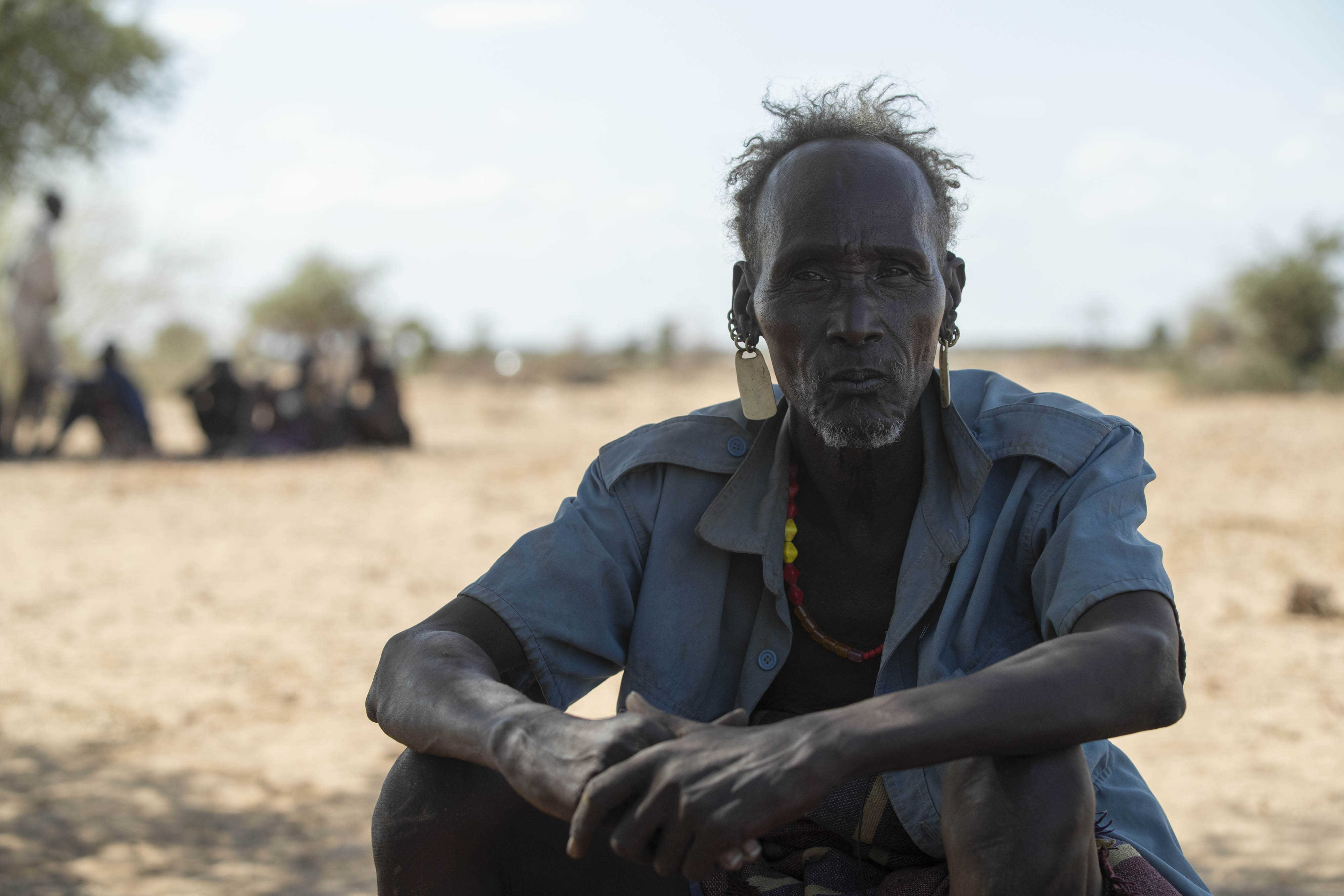
The current drought is the worst that Bute has ever experienced in his lifetime. Photo: Zacharias Abubeker/Caritas Australia
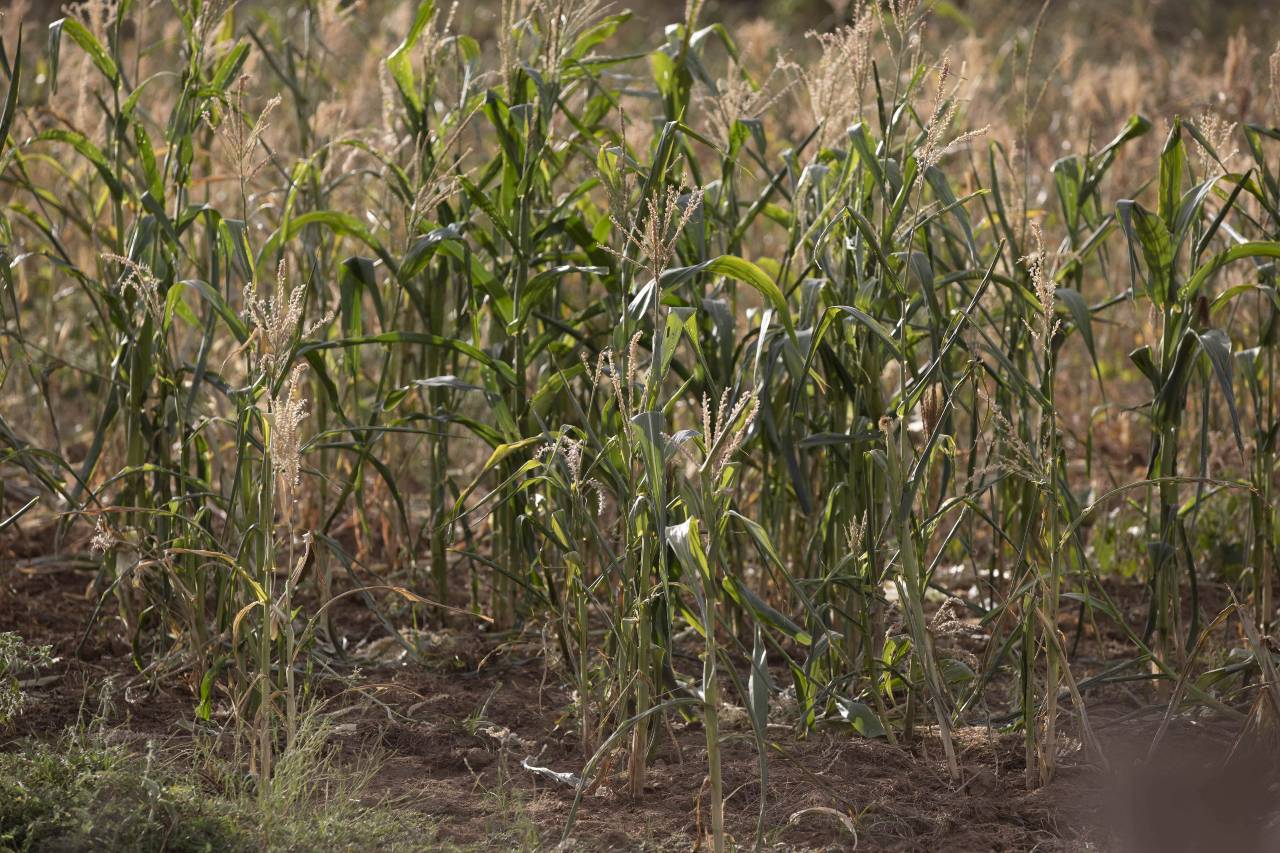
Failed crops in southwestern Ethiopia. Photo: Zacharias Abubeker/Caritas Australia.
“We only saved ourselves and our children. It happened during the night, when we were asleep. It happened very quickly,” Bute recalls.
“The water came in the night while we were sleeping. We realised and then ran away holding our children. We didn’t have time to do anything, we could only run with our children and ourselves.”
Forced to relocate to barren desert land, Bute and Burre joined many others in their community who were left with nothing. The last three years have brought relentless drought—erratic rainfall, failed crops, and dead livestock. Without food, water, or any means of survival, they have become completely reliant on humanitarian aid.
Hunger has not only taken their livelihood—it has taken their family. Bute and Burre’s seven adult children left over a year ago in search of food. They have not returned.
“We are so sorry that we don’t have something for them to eat. We are sorry we can’t live together. If we had food, we would live together and live life together as a family.”
“Before, we could manage by selling our livestock, but now we are totally dependent on aid from organisations and the government. Before we could survive by ourselves with our livestock, but now we are completely dependent on aid. If it wasn’t for Caritas, you wouldn’t find anybody around here.”
With your help, Caritas Australia is working alongside Caritas Ethiopia to provide urgent food and emergency water to drought-stricken communities like Bute and Burre’s. But the need is overwhelming, and time is running out.
“We pray and hope for rain. We appeal for people to give us food because here there is continuous drought, we can’t farm, there is no rain. We have no other chance except for this help.”
Bute and Burre’s plea is clear. Without immediate assistance, more families will be torn apart by hunger. More children will go without food. More lives will be lost.
Donate today and help provide life-saving food and water to those who need it most.
Vulnerable communities across Africa face multiple critical problems including conflict, displacement, hunger, and the impacts of climate change such as droughts and flooding.
Your donation will be used to support our partners on the ground in countries across the region who are delivering support to vulnerable communities with emergency shelter, food and nutrition, health and medical support, and access to clean water, hygiene and sanitation support.
Caritas partners are present in many countries across Africa including Democratic Republic of the Congo, Sudan, South Sudan, Ethiopia, Kenya, Somalia, Eritrea and other countries where the need is great.
Choose an Australian charity that is working in the region or has direct partnerships with organisations that are working in the region, and that aligns with your values. To ensure your donation is going to be used effectively, check their website to see what percentage of funding goes to programs. Reputable charities will have this information readily available. You can also check for things like DFAT accreditation and ACFID membership, which ensures responsible governance of funds at the highest level.
You can help people in Africa by donating to a charity that is working in the region or has direct partnerships with organisations that are working in the region, and that aligns with your values. Your voice has power. Speak up about the crises when and where you are comfortable to do so. You can also contact your local MP to express your views and ask that they support more action to support people in Africa.
Caritas partners with many organisations in countries across the region. As part of the Caritas Network, we work closely with our partners to understand the needs of the local population and use funding to support local initiatives.
Yes, we deliver aid to those who need it most, regardless of cultural, religious or political differences.
No, our partners on the ground are best placed to decide where funds are directed based on their expertise and first-hand experience of the priority needs of the population, and the current context and access situation.
As part of one of the biggest humanitarian networks in the world, we work alongside partner organisations who have been in the region for decades, and have the necessary knowledge, experience and expertise to ensure donations are used effectively. We are DFAT accredited and ACFID signatories, ensuring that we have responsible governance of funds at the highest level.
Yes, all donations over $2 are tax deductible.
No, we do not accept donations of goods. Goods can be expensive through shipping and storage fees, and cause logistics issues which can delay the arrival of much needed aid.
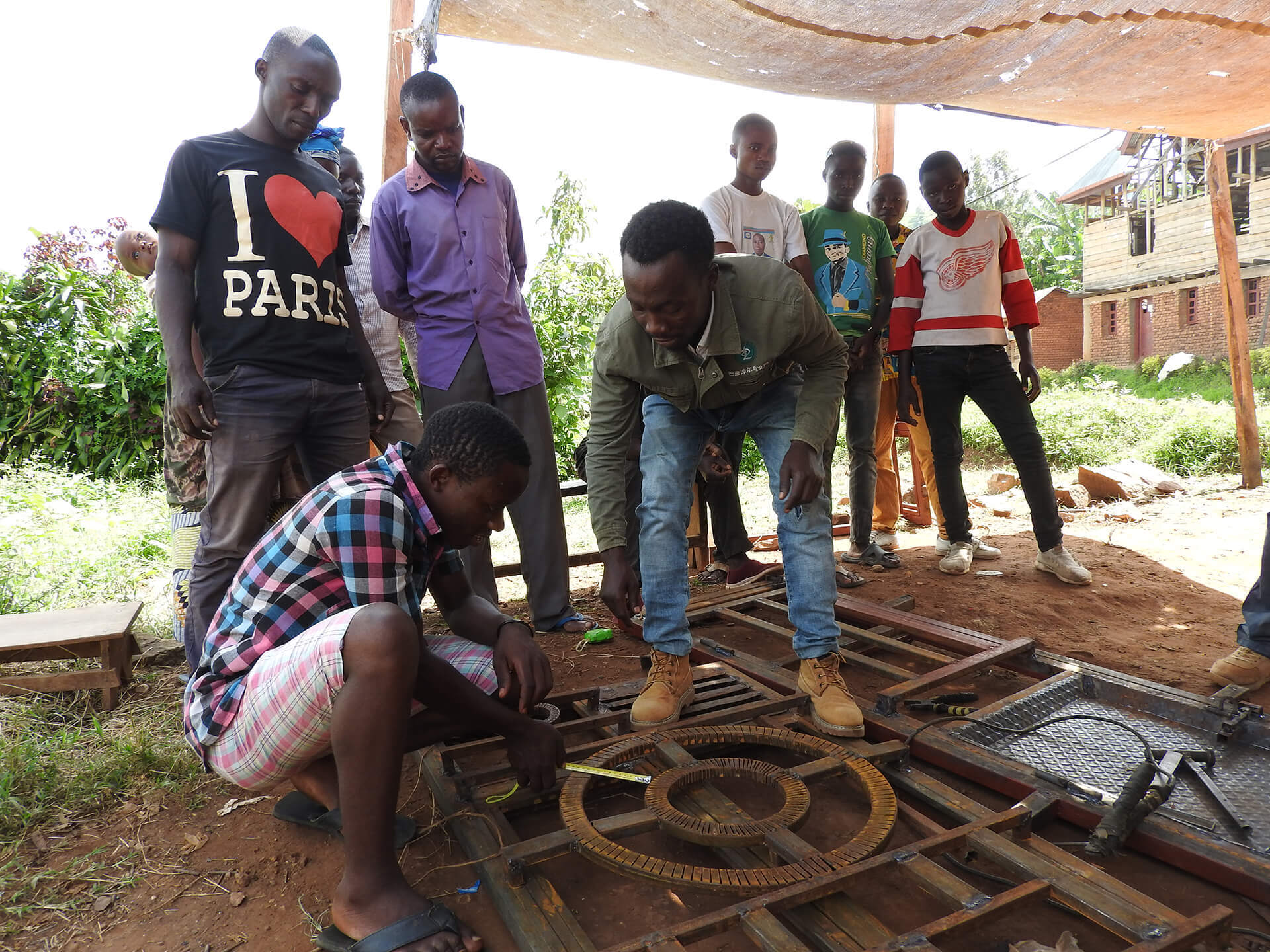
Photo: Lulu Mitshabu and Jeannot Kassa/Caritas Australia.
Where does my donation go?
The funds you donate to this appeal go to Caritas Australia’s Emergency Response Fund and will be used to provide humanitarian assistance to communities affected by this crisis. Should circumstances prevent us from delivering aid to this emergency, or if excess funds remain after the crisis, donations will be directed to other emergencies where Caritas has humanitarian operations.
















